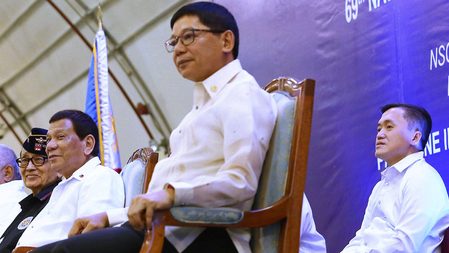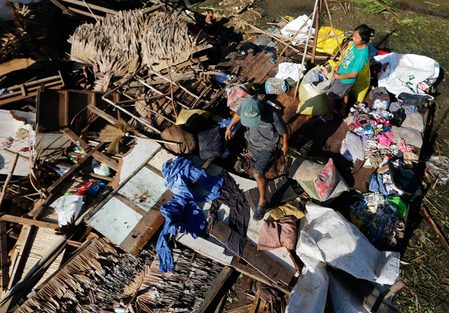SUMMARY
This is AI generated summarization, which may have errors. For context, always refer to the full article.
Silicon Valley’s sins have come home to roost. What happened in countries like the Philippines is now threatening US elections. That’s why about a month before the November 3 vote, I joined Carole Cadwalladr, the British journalist who broke the Cambridge Analytica story, and 22 other industry experts in The Real Facebook Oversight Board – “an emergency intervention aimed at Mr Zuckerberg and Facebook employees.”
Harvard professor Shoshana Zuboff, author of The Age of Surveillance Capitalism, kicked off our launch on October 1, 2020. “Our group has come together for one purpose: we demand comprehensive action to ensure that Facebook cannot be weaponized to undermine the vote and with it American democracy,” she said.
We fear it may be too late. Learn our lessons from the Philippines. It’s strange when you begin to see a dystopian future and count the forks in the roads not taken. And you begin to understand how Cassandra and Sisyphus felt.
PH: First domino to fall
Democracy is dying. That was what I told Facebook in August 2016; what I repeated 4 months later to journalists at the Google NewsLab in Mountain View; and what I said in every keynote around the world, in every award acceptance speech in the past 4 years.
Lies laced with anger and hate spread faster and farther than boring facts on social media. A lie told a million times becomes a fact. Without facts, you can’t have truth. Without truth, there is no trust. Without all 3, democracy as we know it is dead.
The Philippines was the first domino to fall in 2016, followed a month later by Brexit. As Rappler’s business and technology leader, an investigative journalist, and the target of government attacks, I lived through the different strands that led us here.
After all, Rappler started on Facebook in 2011. We saw its best and are now living through its worst. Frenemies, I call us. Rappler was among the first to see the problem and worked quietly behind the scenes, but we had a responsibility to tell our public how they are being manipulated. In 2016, we did stories about the impunity of two men: Rodrigo Duterte and Mark Zuckerberg.
Now I am horrified to watch what is happening as Americans prepare to vote, worried about the campaigning already happening on Facebook for our 2022 presidential elections.
Without facts, how can any nation have integrity of elections? Does free will even exist with constant, insidious manipulation?
Learn from our experience in the last 4 years. This is how power shapes reality and destroys trust. With the help of Silicon Valley.
Machine manipulates us
In 2016, Rappler documented and tracked the data and influence operations: the attacks began after we exposed the pro-Duterte propaganda machine seeding attack narratives like “journalist equals criminal.”
In 2017, that same message bottom up came top down when President Duterte attacked Rappler in his State of the Nation address. A little more than a week later, we received our 1st subpoena.
In 2018, the law was weaponized: 11 complaints and cases were filed against me and Rappler.
In 2019, I was arrested twice in a 5-week period and forced to post bail 8 times in about 3 months to stay free and keep doing my job.
In 2020, I was convicted of cyber libel for a story we published 8 years ago, one I didn’t write, edit, or supervise at a time when the law we supposedly violated didn’t even exist. Yet, a former colleague, Rey Santos, Jr, and I can go to jail for up to 6 years.
Social media is now a behavior modification system, and we are Pavlov’s dogs.
We input our atomized selves, and for each post, machine learning builds a model of who we are: it knows us better than our family and friends, better than we know ourselves. Then artificial intelligence takes our most vulnerable moment to a message and sells it to the highest bidder. It could be a company or a country. This pattern of insidious manipulation creates its own feedback loop that keeps the machine learning and growing.
Cheap state-sponsored armies on social media are in at least 70 countries around the world in 2019, according to the Oxford University Computational Research Project. It is a scorched-earth policy for power and money, now part of the global dictator’s playbook.
We fought back and survived the last 4 years by understanding the data and by realizing how social media abdicated responsibility to protect the public sphere. We built our response on the 3 pillars of Rappler: technology, investigative journalism, community.
Here are 3 battle fronts for a global response – lessons from the Rappler trenches (and how we’re helping build the future now):
- TECHNOLOGY: The world’s largest distributor of news today is Facebook. Yet, it is biased against facts, biased against journalism at a time when journalists are under attack on at least 2 fronts: our credibility and business model. This is the first priority because we have to stop the virus of lies from coming into our information ecosystem.
- Here in the Philippines, we’re helping build technology that will protect users and allow a thinking slow process critical to democracy. This is Lighthouse.
- Globally, we need policy solutions. This is why former EU Parliament Member Marietje Schaake and I are co-chairing the steering committee of experts from academe, human rights, technology, and law for structural solutions to deal with this “infodemic.” The initiative has received strong support from nearly 50 foreign ministers from the Alliance of Multilateralism, and is expected to release potential structural solutions in November.
- JOURNALISM: Facts must survive, and experiments for the distribution of news must continue, even while the cleanup of social media platforms begin. Independent news organizations must survive this crisis of confidence and trust as well as the continuing assault on its advertising business model.
- In the Philippines, Rappler is taking the processes we use for our investigative journalism into disinformation networks, and building them into a product. This is part of the reason that despite the attacks, Rappler not only survived, we thrived. Every company is vulnerable to manipulation and attacks in the age of social media, and aside from dashboards, companies need to pivot and learn to combine structured and unstructured data with the latest technology to protect itself and to build community.
- When the law is used to attack journalists, the defense is not just local, it’s global, because it links directly to issues of rule of law and international law. Aside from our Filipino lawyers led by Francis Lim at ACCRA and Ted Te at FLAG, Rappler receives pro bono legal support from Covington & Burling, LLC. Our international team is led by human rights lawyers Amal Clooney and Caoilfhionn Gallagher, QC.
- Globally, only 0.3% of development funds go to media, and independent news groups will need help to survive the next few years of our information dystopia. This is why there is an effort to get an International Fund for Public Interest Media established: $1 billion annually raised and distributed globally in a transparent manner. Luminate and BBC Media Action’s James Deane are leading this charge; I am part of its Advisory Group.
- COMMUNITY/CIVIC ENGAGEMENT: Rappler’s elevator pitch in 2012 is “we build communities of action.” This changes when it becomes dangerous to speak your mind or when communities can’t tell fact from fiction.
- In the Philippines, Rappler continues to grow MovePH, our younger communities of action centered around climate change, fact-checking, gender equality, and health. Since 2018, our communities rallied around our values of speaking truth to power and demanding accountability, and our crowdfunding campaign has helped pay our exponential legal fees.
- Globally, journalists and press freedom groups around the world have come together to help Rappler shine the light on abuses of power in the Philippines. Nearly 80 civil society organizations are in the #HoldTheLine Coalition, led by 3 amazing women: Courtney Radsch from the Committee to Protect Journalists (CPJ); Julie Posetti from the International Center for Jounalists (ICFJ); and Rebecca Vincent from Reporters Without Borders (RSF).
Let me end the way I began with our most effective civic engagement at this moment in time: the Real Facebook Oversight Board – when journalists, academe, civil rights activists, and government officials past and present made clear demands for immediate reforms to help ensure the integrity of facts and elections. Within our first 24 hours, Facebook acted.
The worst public health crisis in a century and the death of facts enabled the consolidation of power by populist authoritarian leaders.
It’s clear now that what happens in the Philippines does not stay in the Philippines.
It’s a brave, new world: like the virus, like climate, the battle for truth – for democracy – is global.
It’s time we start building the future we want, eyes wide open. – Rappler.com
Add a comment
How does this make you feel?



![[ANALYSIS] Crisis of the West, opportunity for the rest?](https://www.rappler.com/tachyon/2024/07/20240715-crisis-of-the-west-opportunity-for-the-rest.jpg?resize=257%2C257&crop_strategy=attention)
![[OPINION] Choosing a president](https://www.rappler.com/tachyon/2024/07/Choosing-a-President-July-9-2024.jpg?resize=257%2C257&crop=300px%2C0px%2C1080px%2C1080px)
![[Edgewise] Authoritarian mass delusion puts US democracy at risk](https://www.rappler.com/tachyon/2024/06/authoritarian-mass-delusion-us-june-18-2024.jpg?resize=257%2C257&crop_strategy=attention)

![[DECODED] The Philippines and Brazil have a lot in common. Online toxicity is one.](https://www.rappler.com/tachyon/2024/07/misogyny-tech-carousel-revised-decoded-july-2024.jpg?resize=257%2C257&crop_strategy=attention)



![[Rappler’s Best] US does propaganda? Of course.](https://www.rappler.com/tachyon/2024/06/US-does-propaganda-Of-course-june-17-2024.jpg?resize=257%2C257&crop=236px%2C0px%2C720px%2C720px)
There are no comments yet. Add your comment to start the conversation.